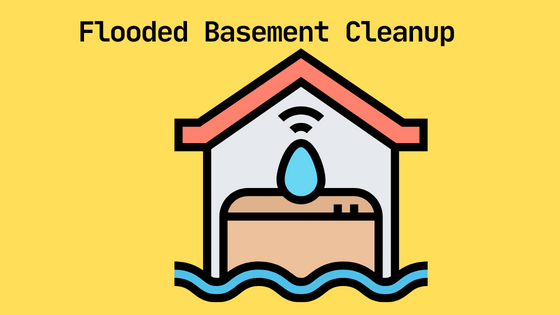A flooded basement can be a major headache. But it doesn’t have to be the end of the world. By taking precautions beforehand and following these tips once water has made its way in, you can keep your basement from becoming a disaster zone.
Keep in mind that if you’re experiencing flooding on a regular basis (for example, every spring), you may need to take more serious measures to prevent future flooding. If you’re having trouble with high water levels year after year, talk to a professional about waterproofing your basement.
Prevent Flooding Before It Happens
There are several things you can do before a flood occurs that will help minimize damage and make cleanup easier:
1) Install a sump pump
2) Seal cracks in foundation walls and floors with waterproofing sealant or concrete patching compound
3) Install backflow valves on all exterior faucets
4) Install check valves on exterior faucets
5) Test backup pumps monthly
6) Keep rain gutters clean
7) Keep downspouts away from foundations
8) Check all pipes in crawl spaces for leaks
9) Put drains on the lowest corner of basements
10) Install backflow valves on irrigation systems
11) Install a battery backup system for sump pumps
12) Replace leaky faucets
13) Raise water heater up on blocks
16) Keep fire extinguishers handy
17) Inspect attic vents
18) Add insulation in crawl spaces
19) Check water pressure

What Can You Do Do When Your Basement Floods?
We’ve learned what to do to prevent basement flooding, now let’s see what to do when your basement floods. If you are unfortunate enough to experience a basement flood, here are some tips:
1) First and foremost, call your insurance company immediately.
2) Turn off electricity at the main breaker box.
3) Call a water damage company to come out as soon as possible.
4) Do not plug in any electrical appliances until you have made sure that the power is completely off.
5) Start pumping out water using a sump pump, but only after you’ve called a repairman.
4) Do not use the basement until it has been professionally inspected and cleaned.
5) You may need to hire a restoration company to help you get your basement back into good condition.
6) This could be a good time to have some renovations done on your basement.
7) If there is mold in your home, you will need to take special precautions to make sure it doesn’t spread.
Conclusion
As you can see a basement flood can be quite a mess to deal with. If you don’t know how to handle it properly, you could end up spending more money than necessary on repairs and renovations. There are many things to consider when your basement floods. It’s important that you act quickly and get help from a professional.